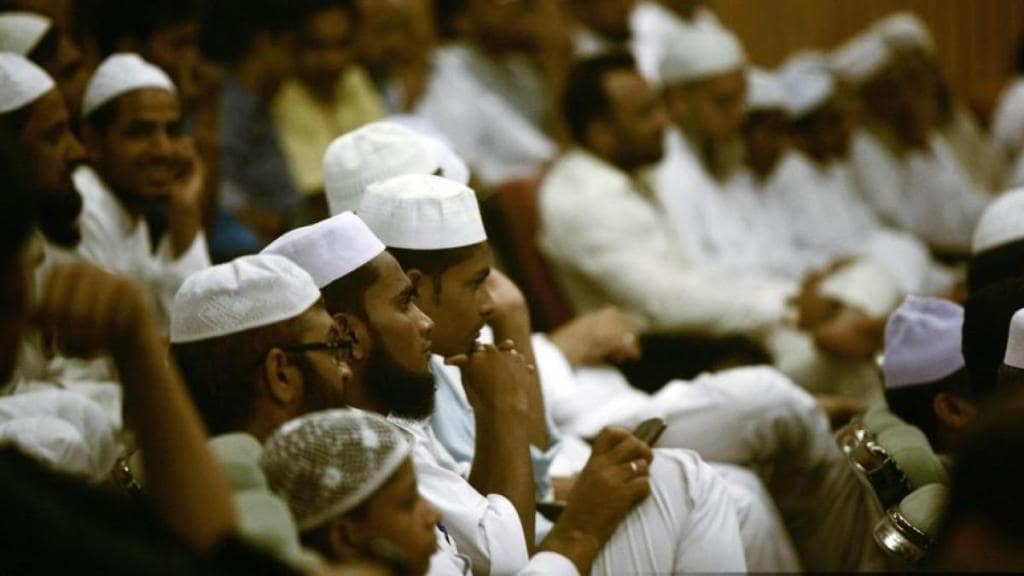After the Joint Parliamentary Committee (JPC) report on the Waqf (Amendment) Bill, 2024 was tabled in the Rajya Sabha on Thursday (February 13), Leader of Opposition in RS Mallikarjun Kharge accused the government of deleting dissenting remarks from the report. Calling it condemnable and anti-democratic, Kharge urged Vice President Jagdeep Dhankhar to reject the report and send it back for reconsideration.
The JPC, comprising both Opposition and BJP MPs, submitted its report to Lok Sabha Speaker Om Birla on January 30. The committee adopted the report with a 15-11 majority vote. BJP members defended the bill, stating that it aims to bring modernity, transparency and accountability to the management of Waqf properties. However, the Opposition criticised it as an attack on the constitutional rights of the Muslim community and an interference in the functioning of Waqf boards.
The Waqf (Amendment) Bill, 2024 seeks to revise the Waqf Act, 1995 by ensuring greater transparency and accountability in Waqf board operations. A key provision of the bill is the mandatory inclusion of women in these bodies. After being introduced in the Lok Sabha in August 2023, the bill was referred to the JPC for detailed examination, with backing from the NDA allies TDP and JD(U).
Understanding Waqf properties – Ownership, purpose and governance
The term Waqf, derived from Arabic, signifies a perpetual endowment — a property donated by Muslims for religious, charitable or private causes. Once designated as Waqf, the property is deemed to belong to God, making its status irreversible and beyond private ownership or sale.
In India, the governance of Waqf properties has evolved over time, with the Waqf Act of 1995 serving as the primary legal framework. Under this law, a Survey Commissioner is appointed to identify, investigate and document Waqf properties. The commissioner is empowered to summon witnesses and access public records to ensure proper listing and protection of these endowments.
One of the biggest challenges surrounding Waqf properties has been encroachment. To address this, the law prescribes strict penalties, including imprisonment, for those found guilty of illegally occupying or misusing Waqf lands. The 2013 amendments further strengthened these protections, explicitly banning the sale, exchange or transfer of Waqf properties.
Proposed changes to the Waqf Act
The government has introduced major amendments to the Waqf Act, aiming to modernise and streamline the management of Waqf properties. Among the most striking proposals is renaming the law to the Unified Waqf Management, Empowerment, Efficiency and Development Act, 1995. Let’s take a look at the key amendments:
- Only individuals with lawful ownership can create a Waqf, preventing disputes arising from unclear property claims
- Properties declared as Waqf, whether before or after the Act’s enforcement, cannot include government land
- The authority to settle land disputes between Waqf and government properties will shift from Waqf Tribunals to District Collectors
End of ‘Waqf by Use’
A significant change eliminates the concept of “Waqf by use”, which allows properties like mosques or graveyards, continuously used for religious purposes, to be recognised as Waqf even without documentation. The amendment now requires an official Waqf deed (Waqfnama), potentially affecting historic sites lacking formal records.
– State Waqf Boards may now have non-Muslim CEOs
– At least two non-Muslim members must be included in each state board
Supporters believe these reforms will enhance governance, curb encroachments and prevent misuse of Waqf properties. By introducing central oversight and empowering collectors, the government aims to make Waqf management more accountable.
Critics, however, fear the bill erodes the autonomy of Waqf institutions, centralises control and marginalises the Muslim community. They argue that Waqf properties, meant for religious and social welfare, may lose their intended purpose under the new framework.


